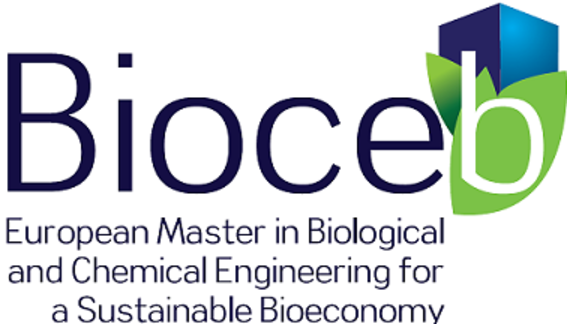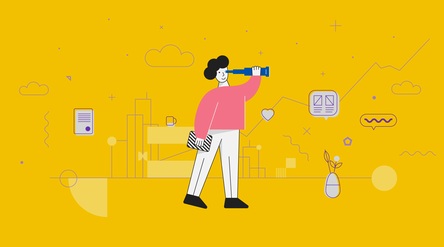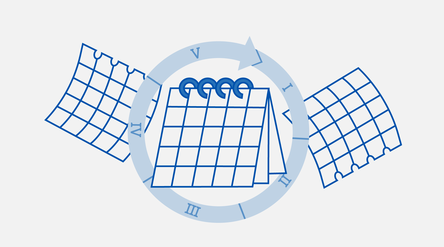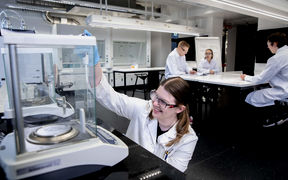Master's Programme in Biological and Chemical Engineering for a Sustainable Bioeconomy

The Master's Programme in Biological and Chemical Engineering for a Sustainable Bioeconomy (Bioceb) is organized by the School of Chemical Engineering. The programme trains future research and innovation managers to tackle the challenges related to the deployment of the bioeconomy across the world. It is targeted at students with a background in fields such as biotechnology, biochemistry, microbiology, biophysics, bioprocess engineering or molecular biology. This site contains the student study guide for the master's programme with materials and instructions. Here you will find the programme curriculum as well as detailed guidelines for planning your studies.
Bioceb is a two-year Master's degree programme (120 ECTS, full time studies) leading into triple degree, supported by European Union, and organized in cooperation between five European universities:
- Institut national des sciences et industries du vivant et de l’environnement (AgroParisTech), (coordinator)
- Université de Reims Champagne-Ardenne (URCA)
- Université de Liège (ULiège)
- Aalto University
- Tallinn University of Technology (TalTech)
Students will study at three institutions as part of their degree, according to their study track. Aalto offers second year studies in two tracks, focusing on materials and biopolymers.
Bioceb was awarded the “Erasmus Mundus Joint Master Degree” label by the European Commission in 2019.
More information about the programme: http://www.bioceb.eu/

News

Thesis Retreat at Hvittorp Conference Centre at Kirkkonummi
Are you writing your thesis and need a few days just for that? Welcome to the Thesis Writing Retreat! This retreat is for all students working on their thesis – bachelor’s, master’s, diploma work, final projects, and doctoral dissertations.
Stop applying for jobs and build your own startup instead at Ignite
Applications for the Ignite summer accelerator program 2026 are open. Apply by March 8.
Join Start to Finnish – A self-study course on Finnish working life
Join this free online course to deepen your understanding of the Finnish working environment, especially its legal and regulatory aspects.
Student: do you need to borrow a laptop for an exam, course or project?
Laptops are now available for loan from IT servicesEvents

Career Design Lab: job search support
We will answer your questions about job hunting and provide feedback on your job application documents.
Theses & Tomatoes: Start your studies with Pomodoro
Join us for guided studying and pick up tips for more effective work during Pomodoro sessions!
Aalto Readers' Club
Join our dynamic book club at Aalto University!
Career Design Lab: job search support
We will answer your questions about job hunting and provide feedback on your job application documents.European Master in Biological and Chemical Engineering for a Sustainable Bioeconomy (Bioceb), Master of Science (Technology)
As the first European joint programme focusing on bioeconomy, the Master’s Programme in Biological and Chemical Engineering for a Sustainable Bioeconomy (Bioceb) trains future research and innovation managers leaping to the forefront of the sustainable development movement. They are well-prepared for tackling global challenges like climate change mitigation and the preservation of biodiversity.







